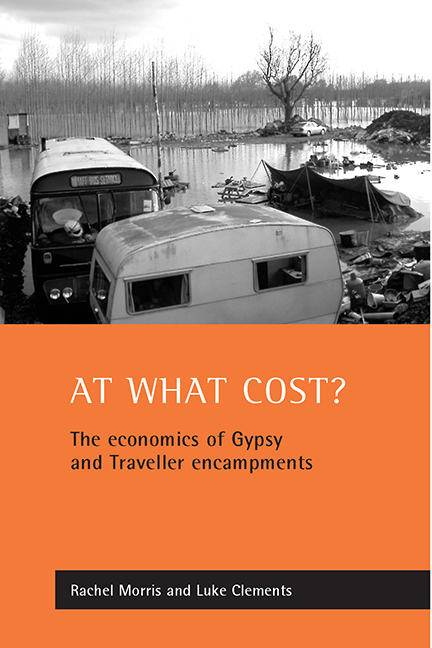Book contents
- Frontmatter
- Contents
- List of tables
- Preface
- Acknowledgements
- List of acronyms
- Dedication
- one Introduction
- two Past and present law
- three The costs to local authorities
- four The costs to others
- five Best Value
- six Rights, race relations and Best Value
- seven Conclusion: obstacles and opportunities
- References
- Appendices
- Index
- Also available from The Policy Press
six - Rights, race relations and Best Value
Published online by Cambridge University Press: 20 January 2022
- Frontmatter
- Contents
- List of tables
- Preface
- Acknowledgements
- List of acronyms
- Dedication
- one Introduction
- two Past and present law
- three The costs to local authorities
- four The costs to others
- five Best Value
- six Rights, race relations and Best Value
- seven Conclusion: obstacles and opportunities
- References
- Appendices
- Index
- Also available from The Policy Press
Summary
The 1998 Human Rights Act
Only two respondent authorities to the TLRU costs survey mentioned the 1998 Human Rights Act (HRA). One authority referred to it in the context of reviewing policies relating to unauthorised encampments in order to ensure the authority's compliance with the Act. The other suggested that landowners and businesses might have a remedy for the costs and disruption they incur in relation to encampments, under Protocol 1, Article 1 of the Convention (the right to peaceful enjoyment of possessions).
The principles and structure of the Best Value regime demand that the implications of the Act be taken into account by public bodies. The HRA came into force in the UK on 2 October 2000, and incorporates the European Convention on Human Rights (ECHR) into British law. The Convention rights and freedoms protected under the HRA include Article 6, the right to a fair trial; Article 8, the right to respect for private and family life, home and correspondence; Article 11, the right to freedom of assembly and association; and Article 14, the prohibition of discrimination on any ground such as sex, race, colour, language, religion, opinion, national or social origin, association with a national minority, property, birth or other status. Also included within the HRA are the rights under the various Protocols (ECHR supplements) to which the UK is a party, including the right to peaceful enjoyment of possessions (Protocol 1, Article 1), and the right to education (Protocol 1, Article 2).
Probably the most unique feature of Article 14 is that the grounds on which discrimination are claimed may not be as important as the fact that discrimination has taken place. The list of grounds is not exhaustive and other grounds have been held to be acceptable (for example, age and sexual orientation). For example, this may reduce long-standing legal argument about what does or does not constitute a ‘Gypsy’; a complainant may not have to show that they are a Gypsy but only that they were treated in an unjustifiably discriminatory way because it was believed that they were.
Police services and local authorities are counselled by the government to review their policies and practices, with a view to ensuring that these are HRA compliant.
- Type
- Chapter
- Information
- At What Cost?The Economics of Gypsy and Traveller Encampments, pp. 87 - 100Publisher: Bristol University PressPrint publication year: 2002



